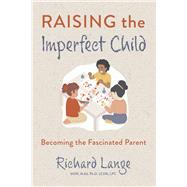We learn from mistakes. However, parents do not seem to apply this basic concept to their children. They expect their children to be perfect: to be the best in the class, the best on the team, and to win the contest. Even at home, they expect their children never to knock things over, slip on the floor, or forget lunch.
When a child fails to be perfect, parents see the behavior as "bad," never as a "mistake." A mother who finds a broken lamp in the living room never says, "It looks like you made a mistake here." No, they say, "I told you not to run in the house; now look what you did."
Changing being "bad" into a "mistake" shifts the perspective from assigning blame to helping the child learn. When a child is blamed, the message is, "There is something wrong with you." Parents reinforce this by adding descriptions such as, "You are so wild," "You never follow the rules," and "You don't listen." However, a statement like, "It was a mistake to run through the house, now the lamp is broken, what are we going to do about it?" is a different message: This is something we can fix. Educational psychology demonstrates this approach works; parents have to catch up.
Why is this so? Caroll Tapirs and Elliot Bronson, the authors of Mistakes Were Made (But Not by Me), suggest a reason; "Most Americans know they are supposed to say we learn from our mistakes, but deep down, they don't believe it for a minute. They think that mistakes mean you are stupid."
Making a mistake, however, does not mean you are stupid; it just means you made an incorrect prediction. Let's say you are a chemist. You believe adding chemical A to chemical B will turn the mixture blue. If it does, you confirm your prediction, but if the solution turns green, you make a mistake.
Similarly, children are exploring the world. They are learning the rules for school and social situations. Teenagers are constantly learning, but now it's figuring out how to be an adult. For children and teens, the world is puzzling, and they sometimes, like the chemist, make wrong predictions. For example, they didn't expect their sister to scream when they took her toy. They didn't realize their friend would be angry when they "borrowed" the videogame. They didn't understand that coming in late to dinner would upset their grandmother. It is easy to see these "misbehaviors" as being "bad." I proposed that they are poor predictions, misjudgments: and mistakes.
Parents who radically change, and I do mean radically, their view from "misbehaviors" to a "mistake" can help their children do better in the world because it changes the child's self-image from "I'm incompetent" to "Oh, I just discovered something about the world." The child can then learn how to solve the problem.
Let me give two examples. Let's say you get a note from your son's teacher reporting that he was talking in class. Our initial response is to start correcting the behavior; "You know you shouldn't be talking in class! That is so rude of you. What's wrong with you? You know better!" However, if we remember that the child is still exploring the world and learning new skills, we can change this interaction to explore the child's mistakes. You could say, "It was a mistake to talk during a lesson; did you realize that?" Here the conversation could go two ways. The child could know it was a mistake but did not know what to do. "Yea, Mom, I knew it wrong, but Jason kept asking me questions." The parent could then work with the child to solve the problem, such as having Jason sit at a different seat or teaching the child to ignore Jason when he is talking during a lesson.
Now there could also be the possibility that your son did not know it was wrong and tried to blame it on the teacher. "The teacher is stupid. She doesn't know what she is talking about." The parent can then teach the child that his behavior is socially unacceptable. "Robert, when you talk when others are sp








